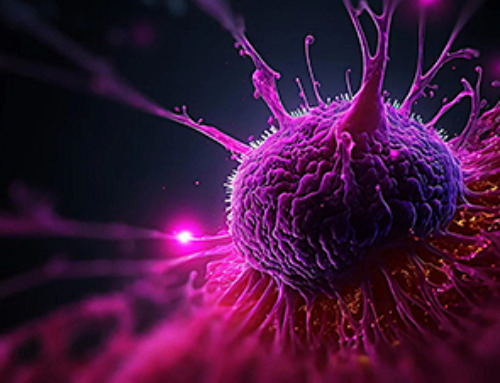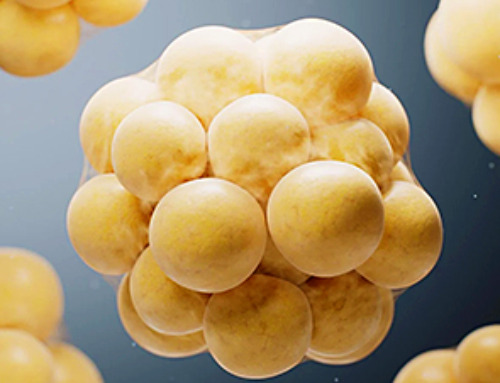Cancer cells are incredibly adaptable, much like stem cells. Researchers from the University of Basel have discovered substances that artificially mature breast cancer cells of the very aggressive triple-negative subtype and transform them into a state that is similar to normal cells.
Cancer occurs when cells grow uncontrollably and spread to other organs. Cancer cells are quite different from normal ones. Cancer cells are known for their remarkable adaptability to varied settings in the body as well as drug treatments. They resemble stem cells or cells at an early stage of development in this regard.
The prospect of artificially maturing (or, more accurately, differentiating) breast cancer cells as a strategy to transform them into a more normal kind of cell has been explored by researchers at the University of Basel and the University Hospital Basel.
“We show here that we can convert breast cancer cells to less harmful cells that stop growing,” says Bentires-Alj who is a group leader at the Department of Biomedicine.
The dual activity of the estrogen receptor
The hormone estrogen operates as a signaling molecule in cells by attaching to its cognate receptor, the estrogen receptor, inducing a wide range of biological effects. Cells that express the estrogen receptor in the normal breast are mature specialized breast cells that do not proliferate.
In contrast, in a fraction of breast cancers cells that express the estrogen receptor proliferate significantly. These breast cancers are called estrogen receptor-positive breast cancers and comprise about 75% of all breast cancer cases. Because they are susceptible to estrogen, they can be treated with anti-estrogenic therapies, which are highly effective in patients.
The triple-negative breast cancer subtype, however, is not susceptible to estrogens or anti-estrogens. This type of carcinoma occurs mainly in pre-menopausal women and often lacks effective treatment options. “Our initial idea was to induce estrogen receptor expression in order to convert triple-negative breast cancer into estrogen-receptor positive breast cancer because of more effective treatment options available for this subtype,” says the study’s lead author Dr. Milica Vulin.
In collaboration with Novartis, the research team tested more than 9500 compounds for their efficacy in reaching this goal. They found that the compounds showing the most promising results were inhibitors of an essential cell cycle protein called polo-like kinase 1 (PLK1). Inhibiting this protein resulted in the desired increased expression of the estrogen receptor. To the researchers’ surprise, this did not just convert the triple-negative breast cancer cells to a more manageable type of cancer cells. It converted them to cells that are similar to normal cells.
Implications for treatment
“Understanding the cellular and molecular mechanisms that define cancer and how these mechanisms differ from normal cells is crucial for developing new innovative therapies,” says Bentires-Alj. The results open a new avenue for treating triple-negative breast cancer. “The compounds used in this study are already in clinical trials to treat other cancer types, including blood-borne, lung, and pancreatic cancer,” the researcher continues. This underlines the possibility of testing these compounds in clinics and in treating breast cancer.
Especially in the era of immunotherapies, it has been suggested that “normal-like” cells can be cleared by the immune system while “cancerous” cells evade killing by immune cells. In the future, it remains to be determined if differentiation therapy can be combined with immunotherapies. “We are pursuing such strategies, and only time and resources are in our way to make further progress,” the researchers conclude.
News
Deadly Pancreatic Cancer Found To “Wire Itself” Into the Body’s Nerves
A newly discovered link between pancreatic cancer and neural signaling reveals a promising drug target that slows tumor growth by blocking glutamate uptake. Pancreatic cancer is among the most deadly cancers, and scientists are [...]
This Simple Brain Exercise May Protect Against Dementia for 20 Years
A long-running study following thousands of older adults suggests that a relatively brief period of targeted brain training may have effects that last decades. Starting in the late 1990s, close to 3,000 older adults [...]
Scientists Crack a 50-Year Tissue Mystery With Major Cancer Implications
Researchers have resolved a 50-year-old scientific mystery by identifying the molecular mechanism that allows tissues to regenerate after severe damage. The discovery could help guide future treatments aimed at reducing the risk of cancer [...]
This New Blood Test Can Detect Cancer Before Tumors Appear
A new CRISPR-powered light sensor can detect the faintest whispers of cancer in a single drop of blood. Scientists have created an advanced light-based sensor capable of identifying extremely small amounts of cancer biomarkers [...]
Blindness Breakthrough? This Snail Regrows Eyes in 30 Days
A snail that regrows its eyes may hold the genetic clues to restoring human sight. Human eyes are intricate organs that cannot regrow once damaged. Surprisingly, they share key structural features with the eyes [...]
This Is Why the Same Virus Hits People So Differently
Scientists have mapped how genetics and life experiences leave lasting epigenetic marks on immune cells. The discovery helps explain why people respond so differently to the same infections and could lead to more personalized [...]
Rejuvenating neurons restores learning and memory in mice
EPFL scientists report that briefly switching on three “reprogramming” genes in a small set of memory-trace neurons restored memory in aged mice and in mouse models of Alzheimer’s disease to level of healthy young [...]
New book from Nanoappsmedical Inc. – Global Health Care Equivalency
A new book by Frank Boehm, NanoappsMedical Inc. Founder. This groundbreaking volume explores the vision of a Global Health Care Equivalency (GHCE) system powered by artificial intelligence and quantum computing technologies, operating on secure [...]
New Molecule Blocks Deadliest Brain Cancer at Its Genetic Root
Researchers have identified a molecule that disrupts a critical gene in glioblastoma. Scientists at the UVA Comprehensive Cancer Center say they have found a small molecule that can shut down a gene tied to glioblastoma, a [...]
Scientists Finally Solve a 30-Year-Old Cancer Mystery Hidden in Rye Pollen
Nearly 30 years after rye pollen molecules were shown to slow tumor growth in animals, scientists have finally determined their exact three-dimensional structures. Nearly 30 years ago, researchers noticed something surprising in rye pollen: [...]
NanoMedical Brain/Cloud Interface – Explorations and Implications. A new book from Frank Boehm
New book from Frank Boehm, NanoappsMedical Inc Founder: This book explores the future hypothetical possibility that the cerebral cortex of the human brain might be seamlessly, safely, and securely connected with the Cloud via [...]
How lipid nanoparticles carrying vaccines release their cargo
A study from FAU has shown that lipid nanoparticles restructure their membrane significantly after being absorbed into a cell and ending up in an acidic environment. Vaccines and other medicines are often packed in [...]
New book from NanoappsMedical Inc – Molecular Manufacturing: The Future of Nanomedicine
This book explores the revolutionary potential of atomically precise manufacturing technologies to transform global healthcare, as well as practically every other sector across society. This forward-thinking volume examines how envisaged Factory@Home systems might enable the cost-effective [...]
A Virus Designed in the Lab Could Help Defeat Antibiotic Resistance
Scientists can now design bacteria-killing viruses from DNA, opening a faster path to fighting superbugs. Bacteriophages have been used as treatments for bacterial infections for more than a century. Interest in these viruses is rising [...]
Sleep Deprivation Triggers a Strange Brain Cleanup
When you don’t sleep enough, your brain may clean itself at the exact moment you need it to think. Most people recognize the sensation. After a night of inadequate sleep, staying focused becomes harder [...]
Lab-grown corticospinal neurons offer new models for ALS and spinal injuries
Researchers have developed a way to grow a highly specialized subset of brain nerve cells that are involved in motor neuron disease and damaged in spinal injuries. Their study, published today in eLife as the final [...]





















